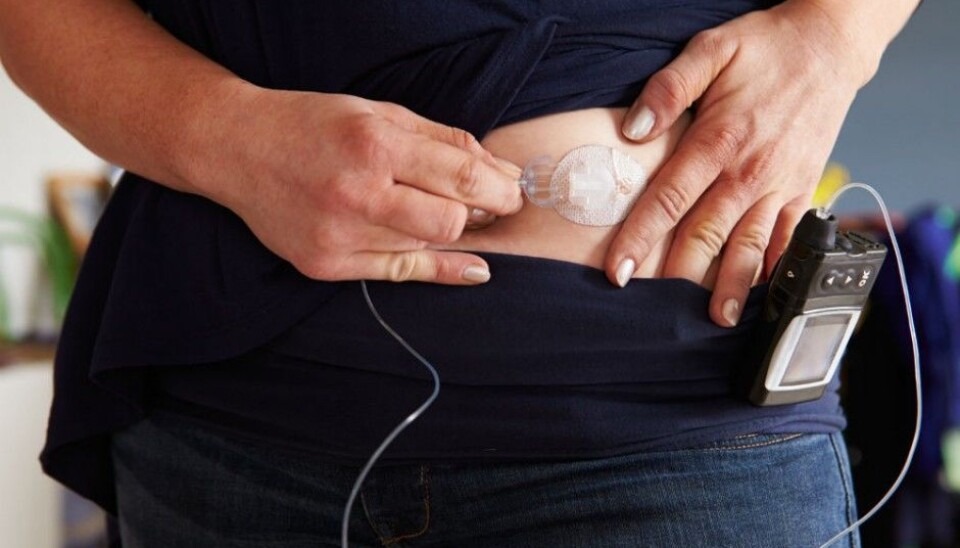An article from Norwegian SciTech News at NTNU

Diabetics who can’t detect their own low blood sugar
Some people with diabetes do not notice when their blood sugar level is getting dangerously low. NTNU researchers are trying to understand why.
People with diabetes can usually tell when their blood glucose (sugar) is getting low. Low blood glucose, or hypoglycaemia, is not dangerous if it is detected early, before a person’s blood glucose level drops too much. Most people with diabetes can control this problem by eating something that contains carbohydrates.
But as many as one in four people with type 1 diabetes do not recognize when a hypoglycaemic episode – or low blood glucose – is coming on. Severe hypoglycaemia may impair a person’s consciousness and can cause their driving privileges to be revoked, among other problems. New and stricter legislation for driving licences has increased the relevance of this issue.
“It is well known that the longer a person has diabetes, the greater the prevalence of impaired awareness of hypoglycaemia. In addition, we know that repeated episodes of low blood glucose can have a bearing on this condition,” says Professor Marit R. Bjørgaas at the Department of Cancer Research and Molecular Medicine, NTNU.
Bjørgaas, along with Asta Kristine Håberg and Tor I. Hansen at the Department of Neuromedicine and Movement Science, has documented this relationship in previous research. Their new study provides additional insights into the condition.
“Our goal was to investigate individuals with and without impaired awareness of hypoglycaemia to increase our understanding of this condition. The ultimate goal is to prevent hypoglycaemic events in vulnerable individuals,” says Håberg.
People with diabetes who have impaired awareness of hypoglycaemia have difficulty in sensing the symptoms and taking necessary precautions to protect themselves.
“By examining cognitive abilities, we tried to establish whether differences in certain cognitive abilities are involved in this condition,” says Håberg.
Tested cognitive abilities
Cognitive abilities enable us to sense the world around us and react to the information we receive. These include attention, planning, short-term memory, long-term memory, language and problem solving.
The study compared cognitive abilities in two groups of people with diabetes. One group had an impaired awareness of hypoglycaemia and the other group had a normal awareness of hypoglycaemia. The researchers used validated tests to ensure sensitive testing of different cognitive abilities, which was a first for this type of study. (See Fact Box.)
The two groups were very similar in their age, the length of time they had had diabetes, sex distribution and blood glucose control. None of the participants had low blood glucose while they carried out an extensive battery of different cognitive tests. The results showed a distinct difference between the groups.
Reduced memory
In general, the group with an impaired awareness of hypoglycaemia had more trouble performing the tests according to the instructions. These individuals basically had the same cognitive abilities as the other group, except for different memory tests, for which they had lower scores.
The difference between groups was small, and would not be noticed in everyday activities. Still, this difference could make these individuals more vulnerable to new hypoglycaemic episodes and further cognitive decline, which would also present distinct challenges if they were to drive or while they were working.
Håberg and the other researchers concluded that the small impairment in memory may cause problems in recognizing the symptoms of low blood glucose.
It is not easy to improve your memory to any great degree, although certain exercises and techniques can be somewhat effective. But technological aids are available that can alert you if your blood glucose is getting too low or is falling too quickly.
“The results of this study are highly relevant for people with type 1 diabetes, because even moderate cognitive impairment may increase the risk of severe hypoglycaemic episodes that include loss of consciousness,” says Professor Bjørgaas.
The researchers say these findings underscore the need to reinforce structured education for people with type 1 diabetes. Moreover, patients with impaired awareness of hypoglycaemia will often need to use technological tools that can prevent severe hypoglycaemic episodes. The results of this study will be published in the journal Diabetologia.
Hansen, Håberg and Bjørgaas collaborated with several colleagues at NTNU, St. Olavs Hospital in Trondheim and the British Heart Foundation Centre for Cardiovascular Science at the University of Edinburgh.
































